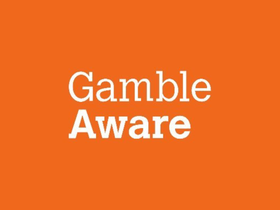American adults have always enjoyed betting on sports and overwhelmingly value the ability to bring their action into a legal market close to home.
In the last five years, Americans have gained a much better understanding of whether sports betting is legal in their state.
But most sports bettors who place wagers with illegal sites offshore still believe all, or at least half, of their bets, are with legal sportsbooks that are regulated, a survey commissioned by the American Gaming Association (AGA) reveals
The survey conducted by Heart+Mind Strategies shows only 29% of American adults are unsure if online sportsbooks are legal in their state — down from 74% of respondents from a 2018 survey.
But the survey also found 70% of sports bettors who use illegal sportsbooks thought they were either betting exclusively with legal sportsbooks or were splitting their wagers evenly between legal and illicit sportsbooks. The AGA said the data point shows a “continued need for consumer education.”
The AGA partially attributed sports bettors’ confusion to illegal sportsbooks claiming they are legal or marketing themselves as such, thereby sowing confusion among consumers. The trade group found that 38% of online sports bettors believe a site is legal based on a statement on the website, while 36% look to odds being mentioned by the media, and 32% are influenced by search results.
Still, the survey showed that as the legal sports betting market grows, they draw more customers away from illegal bookies and offshore sports betting sites.
According to the AGA, 46% of sports bettors that currently bet primarily using illegal sportsbooks plan to switch to legal ones within the next 12 months. The survey also found 90% of bettors who use legal sportsbooks today plan to keep placing their bets legally for the following year.
The trade group found that 71% of sports bettors that use legal sportsbooks do so because they are more confident their bets will be paid out. The survey also found 68% of respondents had more trust in account security and had more accessible payment options through legal sportsbooks.
The rapid spread of legal sports betting — fueled by regulated, responsible entities — has contributed to communities and established consumer protections by migrating betting away from the illegal market
The survey’s findings come five years after the US Supreme Court ruled that the Professional and Amateur Sports Protection Act was unconstitutional — a watershed moment that led to 33 states and the District of Columbia to launch sports betting to date, with another four markets waiting in the wings.
“Five years post-PASPA, the AGA and our members continue to support responsibly expanding the legal market while cracking down on predatory illegal operators,” AGA President and CEO Bill Miller said in a statement Tuesday.
“The regulated industry and our partners across the entire ecosystem — policymakers, law enforcement, regulators, leagues, media, technology providers, and more — have made significant strides in our collaborative consumer education efforts since 2018, and we will continue to find new ways to enhance consumer protections as the market matures.”
The AGA said support for legal sports betting “has grown significantly” since PASPA was scrapped in 2018. The survey found 85% agree with the Supreme Court’s decision, up from 63% of respondents surveyed on the issue in 2019.
The trade group also found that:
- 77% of respondents support legalization in their home state
- 39.2 million American adults placed a traditional sports wager in the last 12 months
- 78% of sports bettors place all or most of their wagers through regulated sportsbooks
- 77% of online sports bets are now placed through regulated operators, up from just 44% in 2019
“American adults have always enjoyed betting on sports and overwhelmingly value the ability to bring their action into a legal market, close to home,” Miller added. “The rapid spread of legal sports betting — fueled by regulated, responsible entities — has contributed to communities and established consumer protections by migrating betting away from the illegal market monopoly that PASPA perpetuated.”
Methodology
Heart+Mind Strategies surveyed 1,066 adults online on behalf of the AGA, including 1,055 respondents who identified themselves as a sports bettor — meaning they placed a traditional wager online, at a brick-and-mortar sportsbook, or with a bookie within the last 12 months.
The survey was conducted between March 14 and 20, with a margin of error of plus or minus three percentage points.



